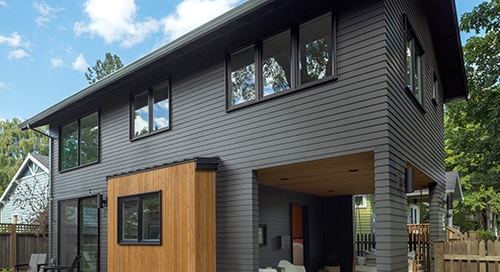The truth is, both approaches have their merits…
Continue readingChoosing Between a Real Estate Broker and a Salesperson:— A Crucial Decision
It is a sobering fact that more than half of the California REALTORS® operating within the industry hold only a salesperson license. In our local context, this percentage is even more pronounced.
But why should you prioritize the selection of a real estate Broker over a salesperson?

The rationale is straightforward; you wouldn’t entrust a surgical procedure to a nurse when a seasoned, specialized surgeon is at your disposal. Nor would you hire a law clerk for your counsel when an experienced trial lawyer is available. The same principle applies here.
A significant number of newcomers to the real estate profession opt for a salesperson license, and a majority never advance beyond that point. Why, you may ask? The reason is clear: it’s challenging, and it takes time and hard work—and a salesperson can operate as a salesperson while working under the guidance and supervision of a broker.
The distinctions between what a salesperson can undertake and what a Broker is empowered to do are substantial. For example, Brokers possess the authority to arrange loans and serve as escrow agents, a privilege withheld from salespersons.
Importantly, Brokers operate independently and are not beholden to another Broker, having satisfied the enhanced experience and educational requisites.
The capacity of your agent to manage escrow or facilitate loans may not always be a critical concern for you, but the knowledge and education mandated to handle such responsibilities are non-negotiable.
It is noteworthy that Brokers must complete three times the educational requirements at the college level compared to salespersons and accumulate years of practical experience before even becoming eligible to sit for the Broker’s examination—an assessment that boasts a dauntingly low pass rate of 51%. This additional education proves invaluable to you when navigating intricate transactions and liaising with less seasoned sales agents.
This is a clear demonstration of how we distinguish ourselves from the competition. The choice between a real estate Broker and a salesperson is not merely a decision; it’s a pivotal choice that can significantly impact your real estate endeavors.

Choose wisely.
Real Estate Revelations: From AVIDs to TDS – How the Law Changed the Game!
Picture this: you’ve got a slew of eager buyers vying for your listing, each armed with their own stack of AVID disclosures. But here’s the kicker – if you don’t pass on those juicy details to the winning bidder, you’re playing with fire.
Continue readingUnlocking Real Estate Mysteries: A Tale of Reconveyance and the Costly Lien Surprise
A reconveyance deed is like the hero that conveys the title back to the trustor-borrower when the borrowed money is fully repaid. Picture it as the grand finale in the mortgage repayment saga.
Continue readingChoosing Between a Real Estate Broker and a Salesperson:— A Crucial Decision
t is noteworthy that Brokers must complete three times the educational requirements at the college level compared to salespersons …
Continue readingUnlocking the Secrets of Insurance Agents and Brokers: Who Works for You?
Most people don’t think about the fact that insurance agents work for insurance companies while insurance brokers work for their clients. Insurance Brokers and Agents are very similar but, in one key way, almost polar opposites…
Continue readingMaximizing Your Real Estate Investment: Unlocking $1.5 Million in Untaxed Gain
If you’ve been residing in your Bay Area home for over five years, chances are you’ve already surpassed the $500,000 capital gains abatement threshold.
Continue readingNavigating Moral Hazard in Real Estate: Balancing Risk and Responsibility
What is a Moral Hazard and Its Relevance in Real Estate
Continue readingThe Future of Real Estate is here—Accessory Dwelling Units
Imagine you have an aging family member that you’d like to come live near you—but not with you—or you simply need to generate some additional income. ADUs give homeowners the flexibility to share independent living areas with family members and others, allowing seniors to age in place as they require more care and helping extended families to be near one another while maintaining privacy.
Accessory Dwelling Units (ADUs) and Junior Accessory Dwelling Units (JADUs) are an innovative and effective option for adding much needed housing in California and could be an answer for people needing supplemental income, or for housing an elderly family member.
ADUs have been known by many names: granny flats, in-law units, backyard cottages, secondary units and more.
What is an ADU?
An ADU is a secondary dwelling unit with complete independent living facilities for one or more persons and generally takes three forms:
· Detached: The unit is separated from the primary structure
· Attached: The unit is attached to the primary structure
· Repurposed Existing Space: Space (e.g., master bedroom) within the primary residence is converted into an independent living unit
· Junior Accessory Dwelling Units: Similar to repurposed space with various streamlining measures
What are the benefits of ADUs?
- ADUs are an affordable type of home to build because they do not require paying for land, major new infrastructure, structured parking, or elevators.
- ADUs can provide a source of income for homeowners.
- ADUs allow extended families to be near one another while maintaining privacy.
- ADUs can provide as much living space as many newly-built apartments and condominiums, and they’re suited well for couples, small families, friends, young people, and seniors.
- ADUs give homeowners the flexibility to share independent living areas with family members and others, allowing seniors to age in place as they require more care.
What are JADUs?
Junior Accessory Dwelling Units (JADUs) are allowed to be created within the walls of a proposed or existing single-family residence and shall contain no more than 500 square feet. JADUs offer additional housing options. They may share central systems, contain a basic kitchen utilizing small plug-in appliances, may share a bathroom with the primary dwelling, all to reduce development costs. JADUs present no additional stress on utility services or infrastructure because they simply repurpose existing space within the residence and do not expand the dwellings planned occupancy.
Funding for Homeowners
CalHFA’s ADU Grant Program — The CalHFA ADU Grant Program provides up to $40,000 in assistance to reimburse homeowners for predevelopment costs necessary to build and occupy an ADU.
How do I build and ADU?
There are many companies who are meeting the needs for this niche market. Some ADU’s are built on-site, and others can be delivered and set up—similar to a mobile home but more permanent and modular.
Here is a link to a handbook for more specific information on ADU’s.
Thanks goes to the California Department of Housing and Urban Development for much of this material.
Drew & Christine Morgan are REALTORS/NOTARY PUBLIC in Belmont, CA. with more than 25 years of experience in helping sellers and buyers in their community. As Diamond recipients, Drew and Christine are ranked in the top 50 RE/MAX agents nationwide and the top 3 in Northern California. They may be reached at (650) 508.1441 or emailed at info@morganhomes.com.
For all you need to know about Belmont, subscribe to this blog right here. You can also follow us on Facebook at https://www.facebook.com/Morganhomes and on Twitter @ https://twitter.com/morganhomes
The information contained in this article is educational and intended for informational purposes only. It does not constitute real estate, tax, insurance or legal advice, nor does it substitute for advice specific to your situation. Always consult an appropriate professional familiar with your scenario.
Why Cash Can Make or Break A Buyer’s Dreams
Cash Buyers beware—the landscape is changing.
Continue reading









